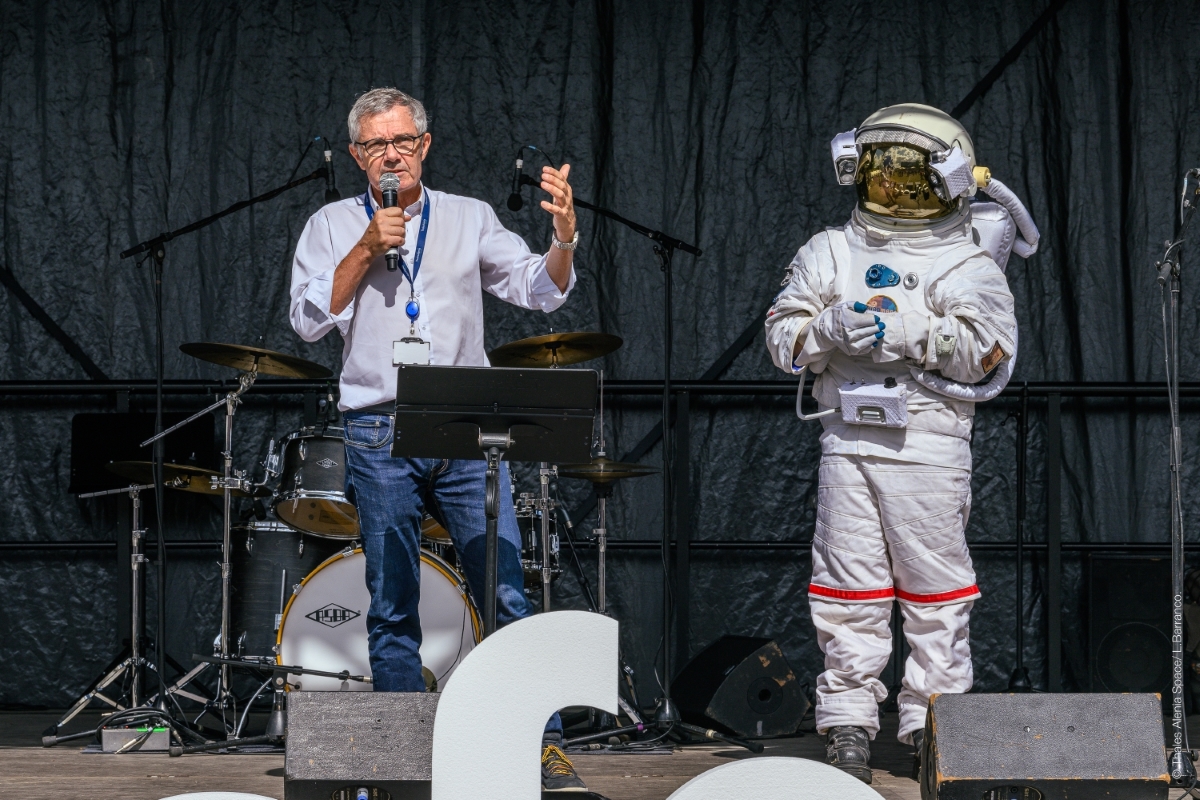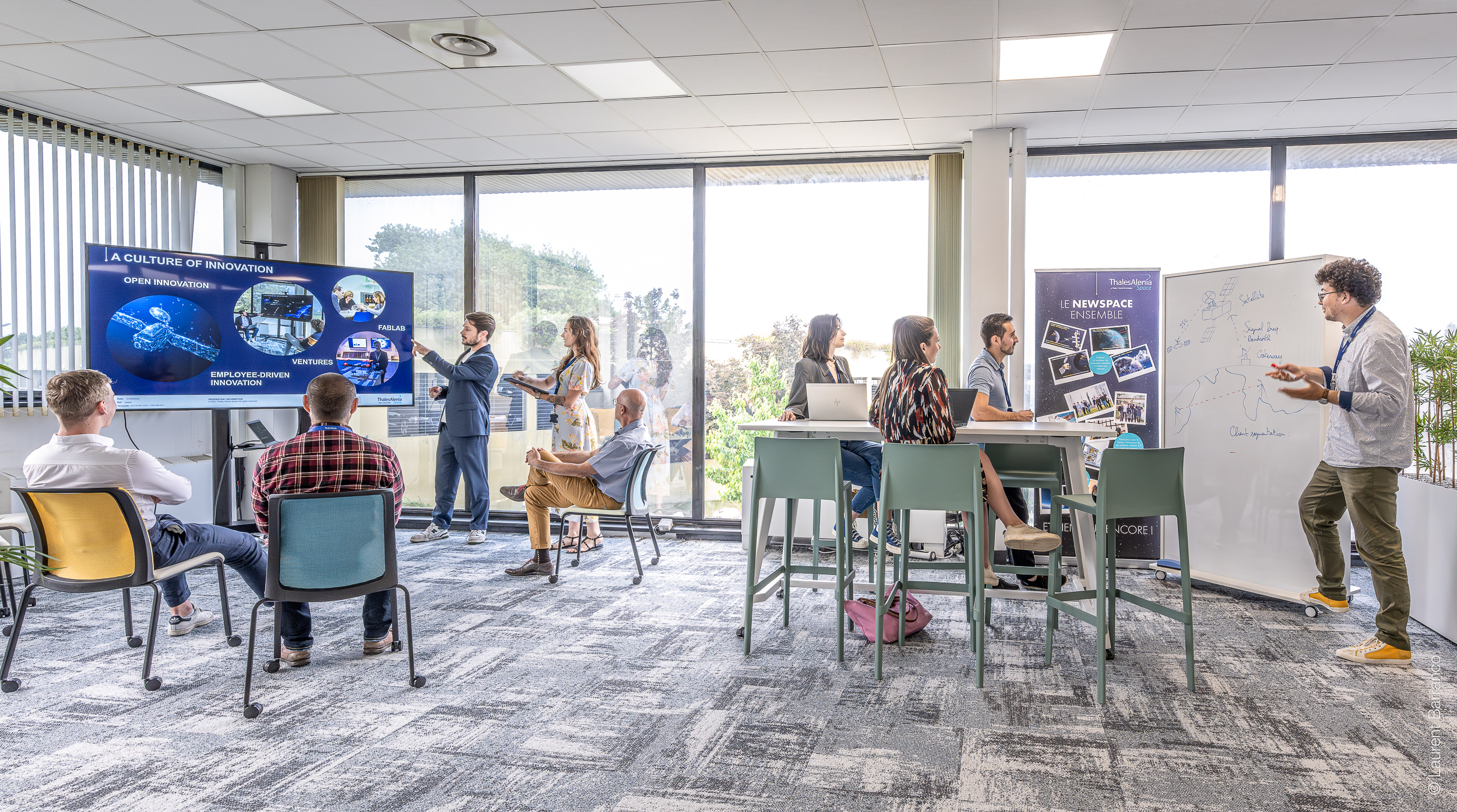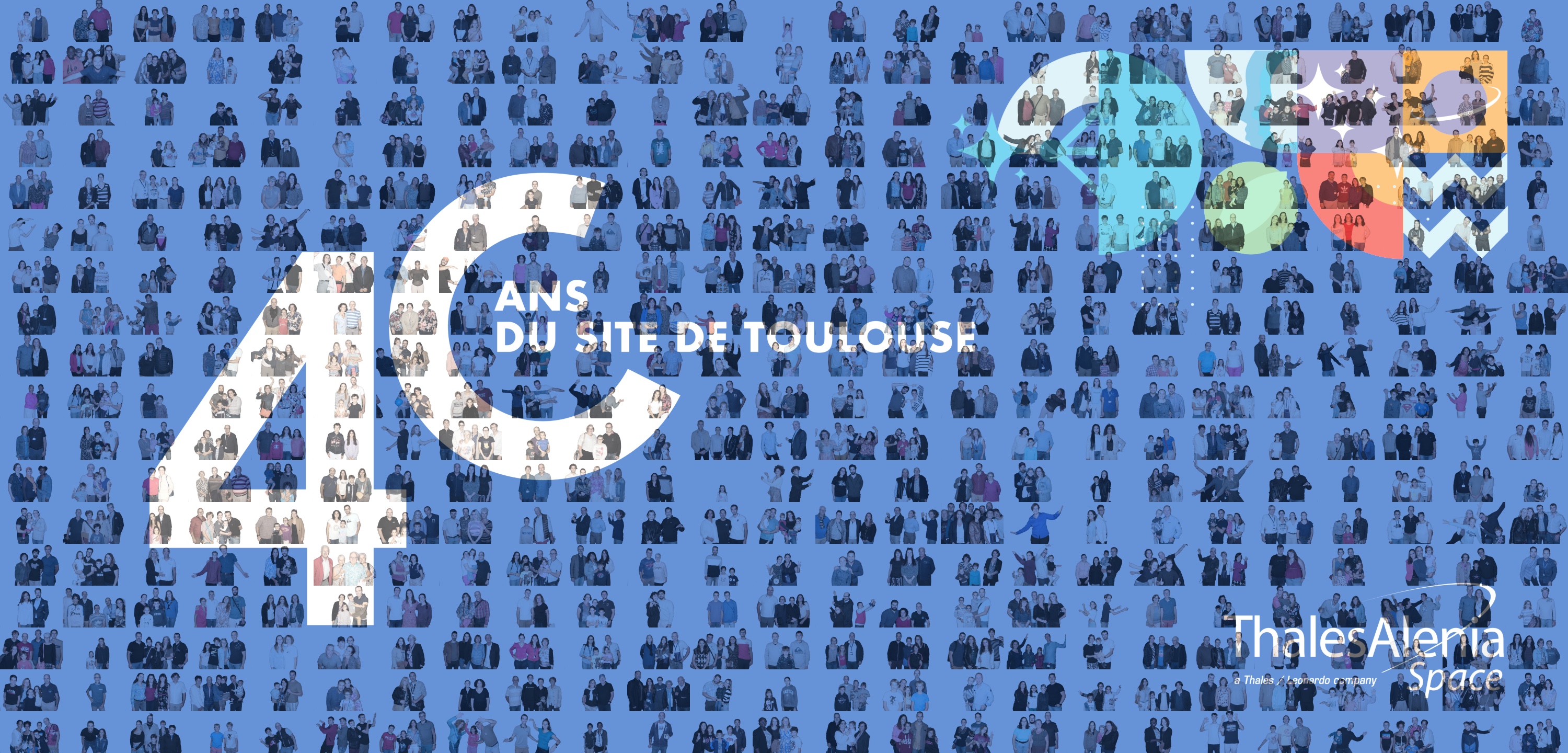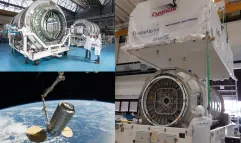Thales Alenia Space’s industrial plant in Toulouse celebrated its 40th anniversary last Saturday, September 23, with an open day for employees and their families. More than 5,000 people came to mark the event in a fun and relaxed atmosphere.

© Thales Alenia Space/Laurent Barranco
The families’ smiling faces perfectly illustrated a day to be remembered in our company’s history. Our employees did a great job communicating their passion for what they do — a passion we hope will inspire future generations. As well as presenting the company’s businesses, the event put on a range of engaging activities for all the family — like the lunar village, an immersive experience inside the ISS, and workshops on how satellites work, microrocket construction, and the various aspects of space and astronomy — that were much appreciated.
Thales Alenia Space in Toulouse: the standouts

© Thales Alenia Space/Laurent Barranco
Thales Alenia Space’s French headquarters in Toulouse is the largest of its nine industrial facilities in Europe. Since opening in 1983, the plant has established itself as a leader in the development and integration of leading-edge space technologies, while contributing to the growth of the local economy. Today, more than 2,800 people work in civil and military communication, satellite altimetry, ground segments and satellite navigation. The plant is also renowned for its expertise in systems engineering and validation, and in software development.

© Thales Alenia Space/Laurent Barranco
In the space of 40 years, the facility has built more than 300 payloads. The one for EUTELSAT KONNECT VHTS, the largest satellite every built in Europe, is a good example. Successfully launched last year, this satellite is dedicated to delivering very-high-throughput Internet services across Europe, helping to bridge the digital divide in underserved regions or “notspots”. We are also working on our new Space INSPIRE product line of all-digital satellites that can be fully reconfigured in orbit as mission needs evolve. Our Toulouse facility is also a pioneer in Europe in space navigation systems, where we are making major contributions to the Galileo first- and second-generation programs and to EGNOS. Furthermore, the company worked on four communication satellite constellations in medium and low Earth orbit, among them O3B and Iridium NEXT, and is a world leader in satellite altimetry.

© Thales Alenia Space/Laurent Barranco
The latest example is the French U.S. SWOT (Surface Water and Ocean Topography) satellite, which is set to revolutionize oceanography and land surface hydrology. Built to a large extent by Thales Alenia Space in partnership with NASA’s Jet Propulsion Laboratory (JPL) for CNES and NASA, the satellite was successfully launched in December 2022. This high-tech marvel will be surveying 90% of Earth’s surface waters — lakes, rivers, reservoirs and oceans.
New Space and the race to innovate

Space Business Catalyst © Thales Alenia Space/Laurent Barranco
Innovation has been in our company’s DNA from the outset. We have leveraged our expertise in constellations, Earth-observation systems and satellite navigation to address burgeoning New Space markets. Today, Thales Alenia Space’s plants are working on new programs to develop high-revisit optical and radar Earth imagery, space surveillance and the Internet of Things (IoT). We are also working on new projects like the standardization of 5G from space and quantum communications. It is also in Toulouse that we have set up our Innovation Cluster. Aimed at fostering intrapreneurship and creativity, this entity has also deployed an open-innovation approach that has spawned a number of partnerships with startups and small-to-midsize firms. And as we seek to forge ever closer ties with part of the space ecosystem, we recently inaugurated our Space Business Catalyst, an industrial accelerator that aims to support innovative projects set to shape tomorrow’s markets hand in hand with startups.
One of the largest solar-canopy parking lots in France

Thales Alenia Space’s teams in Toulouse and at our other facilities have worked on many environmental monitoring programs. Indeed, space is vital to combating climate change, with 60% of climate science parameters acquired from space. Our field of activity is therefore a key asset for gaging the effectiveness of public policies to mitigate climate disruptions, notably by measuring CO2 produced by humans. Likewise, satellites are unmatched sensors supporting efforts to curb deforestation and anticipate severe weather events. Our teams are also working to make space more sustainable. For example, our engineers in France and Italy are helping to build spacecraft that will perform a range of robotic operations in orbit, from repairing and extending the life of satellites to inspection, refueling and deorbiting of space debris. The SWOT satellite has a subsystem to allow its controlled re-entry in Earth’s atmosphere to avoid proliferating space debris when it reaches the end of its operational life.
In a nutshell, the sustainability of space is today something we are addressing in the earliest stages of our projects through product eco-design and an effective HSE* policy. This is the thinking behind our partnership with EDF ENR on one of the largest solar-canopy installations in France, covering two parking lots at our Toulouse facility. The canopies will provide renewable and sustainable energy to meet 10% of the facility’s needs.

@ Thales Alenia Space / Booper
So, we owe a huge thank you to everyone who has worked to make this plant a flagship of Europe’s space industry. Happy anniversary to our Toulouse industrial site!
* Health Safety & Environment


